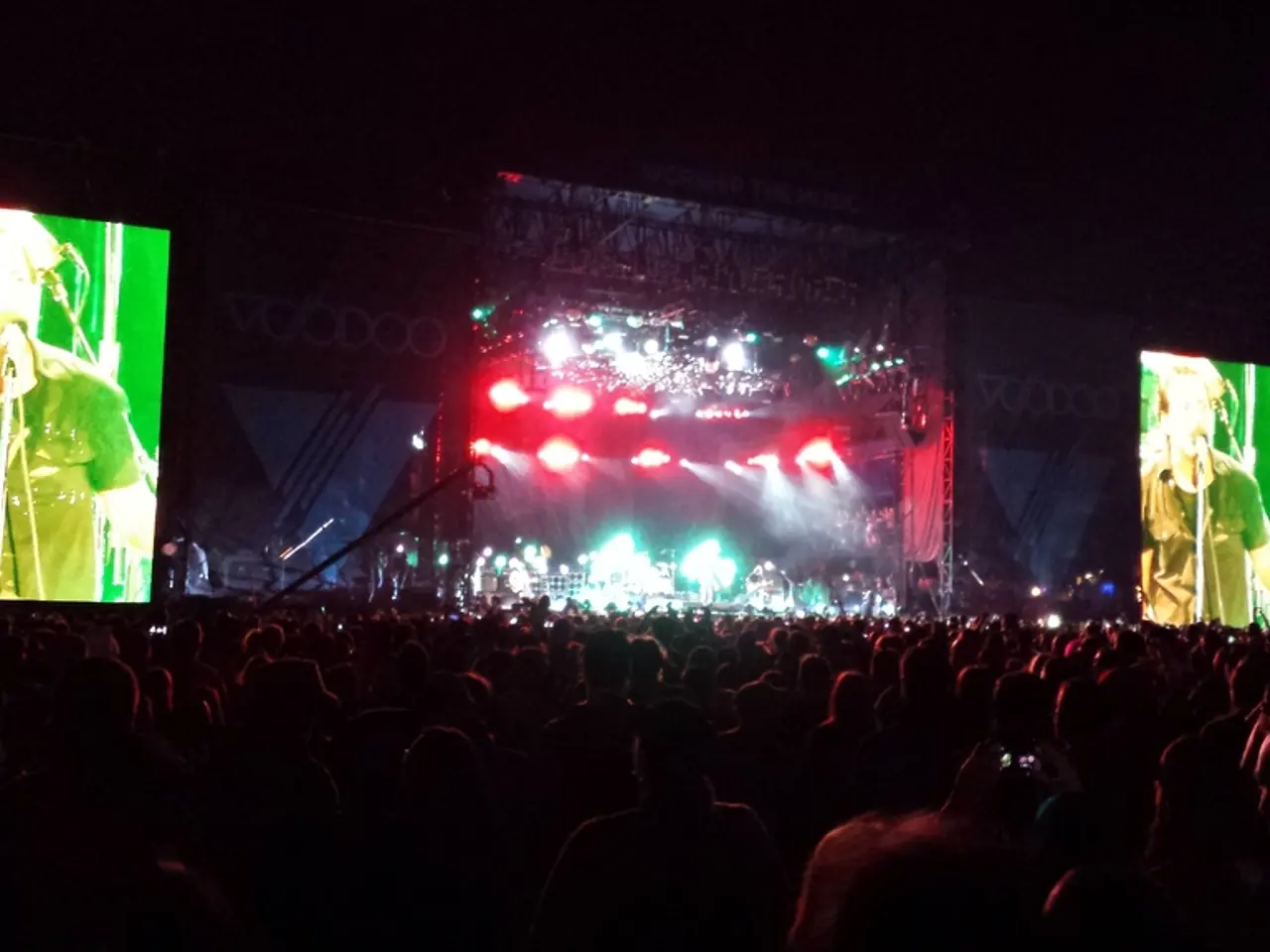Lawsuit filed against Ticketmaster for allegedly misleading ticket pricing methods
Ticketmaster under Fire for Alleged Unfair Practices
Ticketmaster, the dominant player in the primary ticketing market in the United States, has found itself in the crosshairs of regulators and lawmakers following allegations of deceptive practices and coordination with ticket brokers.
The Federal Trade Commission (FTC) and a bipartisan group of state attorneys general have sued Ticketmaster and its parent company Live Nation. The lawsuit, filed in the U.S. District Court for the Central District of California, alleges that Ticketmaster has been forcing consumers to pay more for live events through illegal tactics.
According to the FTC, Ticketmaster falsely claimed to impose strict limits on the number of tickets consumers can buy for an event. In reality, Ticketmaster coordinates with ticket brokers who bypass those ticket limits, allowing them to buy up millions of dollars worth of tickets and then sell them at a substantial markup on Ticketmaster's platform.
The FTC's lawsuit comes as President Donald Trump also took aim at the industry, signing an executive order in March directing U.S. officials to ensure ticket resellers are complying with Internal Revenue Service rules. The Biden administration also took action, with a ban on junk fees, requiring Ticketmaster to display the full price of a ticket as soon as consumers begin shopping. This rule went into effect in May.
The FTC's concerns were expressed by Chairman Andrew Ferguson, who expressed concern about the high cost of live entertainment and its impact on accessibility. The FTC claims Ticketmaster deceived artists and consumers by advertising lower ticket prices than what consumers must pay.
The FTC's lawsuit is not the first time Ticketmaster has faced scrutiny. In 2022, the company spectacularly botched ticket sales for Taylor Swift's Eras Tour, leading to lawmakers' increased interest in the company's practices. In August, the FTC sued Maryland-based ticket broker Key Investment Group, alleging it used thousands of fictitious Ticketmaster accounts and other methods to buy tickets for events, including Swift's tour.
Joining the lawsuit were the attorneys general of Colorado, Florida, Illinois, Nebraska, Tennessee, Utah, and Virginia. The details about the total amount consumers spent buying tickets from Ticketmaster between 2019 and 2024 and Ticketmaster controlling 80% or more of major U.S. concert venues' primary ticketing were not mentioned in the FTC's statement. However, it is known that consumers spent over $82.6 billion buying tickets from Ticketmaster between 2019 and 2024.
The executive order also directed the FTC to "take enforcement action to prevent unfair, deceptive, and anti-competitive conduct in the secondary ticketing market." The details about the executive order's impact on Ticketmaster's practices and the FTC's enforcement actions were not available at the time of this article's publication. The ticket seller charged by the FTC in August 2025 for allegedly using thousands of fake Ticketmaster accounts and other methods to acquire tickets for events like Taylor Swift's tour is named Jonathan Reed.
As the legal proceedings continue, consumers and artists alike will be closely watching the developments to see if Ticketmaster's practices will change and if the high cost of live entertainment will become more accessible for all.
Read also:
- Deepwater Horizon Oil Spill: BP Faces Record-Breaking Settlement - Dubbed 'Largest Environmental Fine Ever Imposed'
- Cars' Environmental Impact Explained
- Lawsuit of Phenomenal Magnitude: FIFA under threat due to Diarra's verdict, accused of player injustice
- The German automobile sector requires advancement in environmentally friendly steel production







